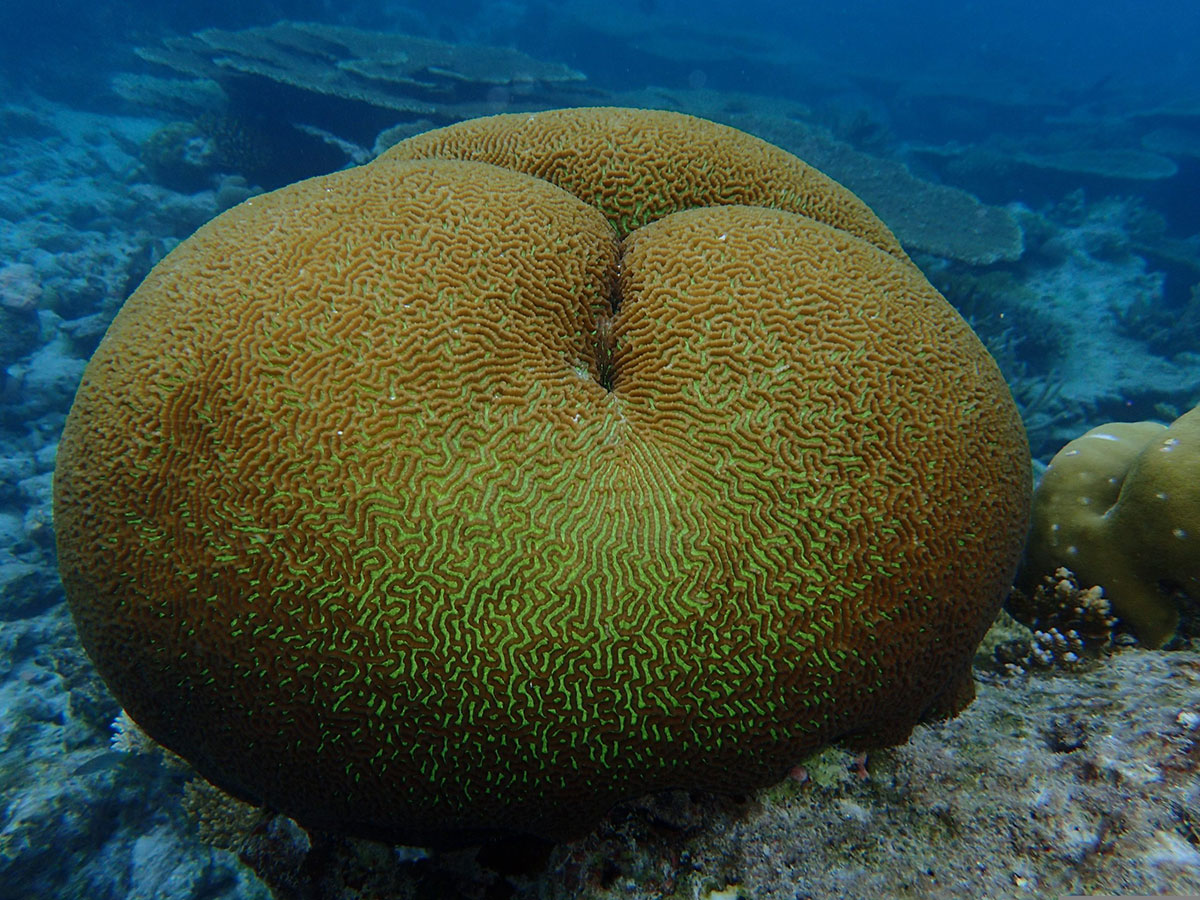
Challenge
The Maldives’ low-lying islands face rising seas, stronger storms, and reef degradation, threatening tourism, infrastructure, and coastal ecosystems essential to national survival.
Solution
The Maldives advances coral reef restoration, coastal protection, and sustainable water management, aligning government, private sector, and communities to safeguard marine ecosystems while sustaining tourism revenues.
Overview
Tourism in the Maldives is both vulnerable to climate change and a driver of adaptation. The Maldives adopted the Tourism Climate Action Plan (2023), developed with support from USAID, which prioritizes reef restoration, coastal erosion control, and sustainable water management. Coral reefs, vital for attracting visitors and protecting coastlines, have suffered from development pressures, prompting early action such as the National Coral Reef Monitoring Program (1998). More recently, reef restoration was formalized under the Project Permit Regulations (2020) and strengthened by voluntary monitoring guidelines (2022). Investments by resorts and large-scale initiatives using larval-based restoration techniques demonstrate a shift toward cost-effective, science-based practices. Community engagement and local capacity building remain central to ensuring effective implementation and stewardship.
This proactive model shows that climate action can reinforce, rather than undermine, economic growth. By protecting reefs, the Maldives sustains tourism and reinvests revenues into further adaptation, creating a positive cycle of resilience. It demonstrates how government, industry, and communities can align environmental stewardship with business success.
Details
The vital role of tourism in climate action
The recognition of tourism’s pivotal role in addressing climate change reached a significant milestone at COP29 in 2024. The inaugural “Tourism Day” at COP29 under Azerbaijan’s presidency underscored this importance, with the integration of “Climate Action in Tourism” into the COP29 Action Agenda. This inclusion reflects a growing global understanding of the sector’s impact and its potential for positive change. The Baku Declaration on Enhanced Climate Action in Tourism, launched on Tourism Day, emphasized critical areas such as climate risk assessment and adaptation planning within the tourism sector. The reaffirmation of the Glasgow Declaration on Climate Action in Tourism further solidified international commitment to accelerate climate action within the tourism industry.
Beyond UN initiatives, organizations like the Global Sustainable Tourism Council (GSTC) are playing a crucial role. The GSTC focuses on developing and managing global standards for sustainable tourism, providing certification for businesses that meet these criteria, and offering educational resources. The GSTC Criteria encompass environmental, social, and economic dimensions of sustainability, including specific benchmarks related to climate action. The certification program recognizes and promotes businesses adhering to these standards, driving industry-wide improvements. Furthermore, the GSTC’s educational and training programs equip tourism professionals with the knowledge and skills necessary to implement effective climate strategies. The increasing collaboration between nations, international bodies, and NGOs underscores the growing recognition of tourism’s crucial role in climate action and the concerted efforts to strengthen related initiatives.
Maldives’ proactive approach to reef restoration
The Maldives has adopted a proactive approach to climate action within its tourism sector. The Tourism Climate Action Plan, developed with support from USAID, identifies coral reef restoration, coastal erosion management, and sustainable water resource management as key adaptation strategies.
Coral reef restoration efforts in the Maldives have a long history. These vibrant ecosystems are not only vital tourism assets, attracting visitors from around the globe, but also play a critical role in maintaining marine ecosystem health, protecting coastlines from erosion, and mitigating the impacts of storm surges and other natural disasters. However, increasing development pressures have led to significant reef degradation, prompting the establishment of the National Coral Reef Monitoring Program in 1998. Recognizing the economic and ecological importance of healthy reefs, the private sector, including resort operators, has invested heavily in restoration initiatives, understanding that reef preservation is essential for attracting tourists and ensuring long-term revenue streams.
To better coordinate and regulate the growing number of reef conservation projects, voluntary monitoring guidelines for fragment-based restoration were introduced in 2022. Prior to this, in 2020, reef restoration activities were formally brought under the Project Permit Regulations. These measures have helped to streamline efforts and ensure the responsible implementation of restoration projects. Currently, large-scale reef restoration efforts are underway, utilizing cost-effective techniques such as larval-based restoration, which focuses on cultivating and transplanting coral larvae. These initiatives also emphasize community engagement, building local capacity in reef management, and developing clear guidelines for selecting optimal restoration sites.
A synergistic approach: Tourism and Adaptation
The Maldives demonstrates that business success and environmental stewardship are not mutually exclusive. Coral reef conservation is not simply an environmental imperative; it is also a sound business strategy. By maintaining the health and vibrancy of its coral reefs, the Maldives preserves its appeal as a premier tourist destination, driving tourism and generating revenue that can then be reinvested into further reef preservation efforts. This creates a positive, self-reinforcing cycle. This principle extends beyond coral reefs to encompass all aspects of natural resource management, including the protection of forests and the sustainable management of water resources.
While climate action is sometimes perceived as a costly undertaking, the Maldivian experience illustrates how responsible natural resource management can simultaneously support tourism development and advance climate change adaptation goals. Achieving this synergy requires strong collaboration between the government, private sector, and local communities, all working together with a shared long-term vision for a sustainable future.
Acknowledgements
This article is based on publicly available information from the websites in the references section. We appreciate the efforts of organizations and researchers who have made this knowledge accessible.
Related Information
Keywords
- # Case Study
- # Oceania
- # Maldives
- # Adaptation Action/Implementation
- # Adaptation Business
- # Adaptation Funding/Finance
- # Adaptation Planning/Policy
- # Capacity Building
- # Disaster Prevention/Disaster Mitigation
- # Education/Awareness/Information
- # International Cooperation
- # Nature-based Solutions
- # Biodiversity/Ecosystem
- # Coastal Areas
- # Local Communities
- # Tourism
- # Water Environment/Water Resources